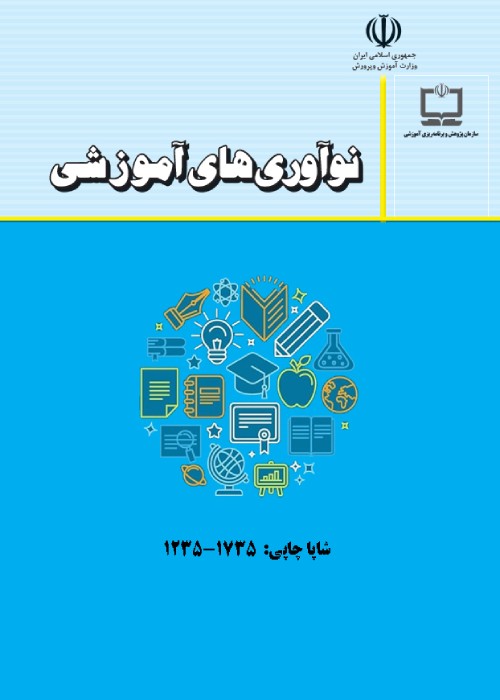The role of personal and mass communication in diffusion of innovations in the educational system
Author(s):
Abstract:
The process of communication has played a great role in "promotion of educational innovations". Communication channels may have interpersonal or mass media nature or may stem from local or transnational sources. The present research shows that the mentioned different channels play different roles in promoting innovations in the educational system. Mass media rapidly expand their audience and while disseminating information, move and change weaker attitudes. When promoting educational innovations, mass media and transnational channels become more important for information while interpersonal and local channels are more effective in the phase of satisfaction. Mass media and transnational channels are relatively more important than interpersonal and local channels for the expensive early adaptation compared to the expensive late adaptation. In developing countries like Iran, a combination of mass media and interpersonal communications is the most effective way to reach people to promote new ideas and encourage them to take advantage of educational innovations. It seems that this issue has practical applications. In some regions ideological leaders have maintained their past roles among their followers.The acceptance levels of innovation include awareness, encouragement, decision, and cooperation. This research aims to determine the relationship between use of communication channels (mass and personal) by teachers and acceptance of educational innovations. For this reason, a questionnaire comprising of 42 questions has been given to teachers. The results that were obtained through 390 questionnaires – filled by teachers of Tehran province high schools in 2003-04 – indicate that:1.There is direct relationship between use of mass communication channels by teachers and taking advantage of educational innovations; 2.There is no significant relationship between use of individual communication channels by teachers and their willingness to avail of those innovations;3.There is reverse relationship between use of mass communication channels by teachers and their getting-along and cooperation with new educational ideas;4.There is direct relationship between use of personal communication channels and cooperation; and5.There is no significant relationship between use of mass communication channels by teachers and their participation in the study.
Language:
Persian
Published:
Quarterly Journal of Educational Innovations, Volume:5 Issue: 15, 2006
Page:
115
magiran.com/p424268
دانلود و مطالعه متن این مقاله با یکی از روشهای زیر امکان پذیر است:
اشتراک شخصی
با عضویت و پرداخت آنلاین حق اشتراک یکساله به مبلغ 1,390,000ريال میتوانید 70 عنوان مطلب دانلود کنید!
اشتراک سازمانی
به کتابخانه دانشگاه یا محل کار خود پیشنهاد کنید تا اشتراک سازمانی این پایگاه را برای دسترسی نامحدود همه کاربران به متن مطالب تهیه نمایند!
توجه!
- حق عضویت دریافتی صرف حمایت از نشریات عضو و نگهداری، تکمیل و توسعه مگیران میشود.
- پرداخت حق اشتراک و دانلود مقالات اجازه بازنشر آن در سایر رسانههای چاپی و دیجیتال را به کاربر نمیدهد.
In order to view content subscription is required
Personal subscription
Subscribe magiran.com for 70 € euros via PayPal and download 70 articles during a year.
Organization subscription
Please contact us to subscribe your university or library for unlimited access!


